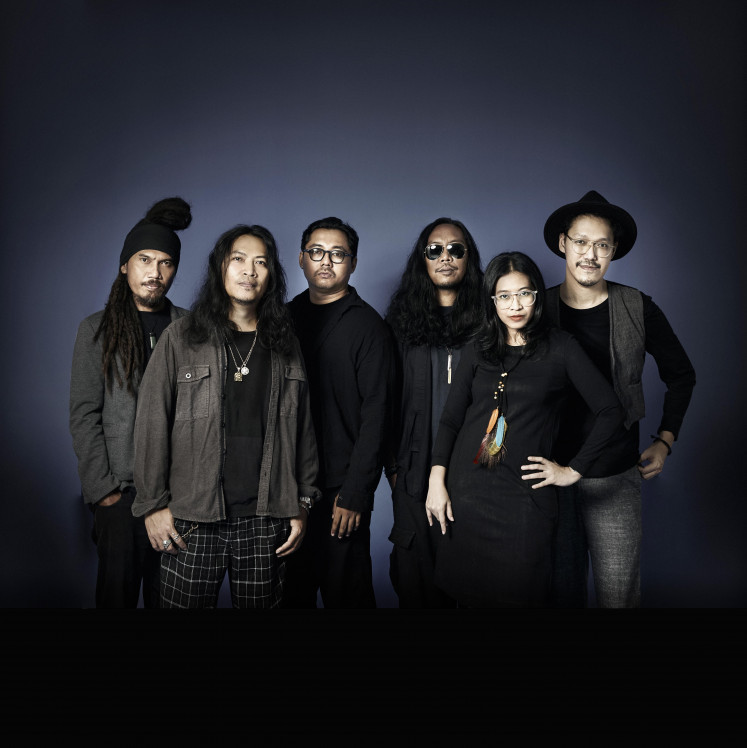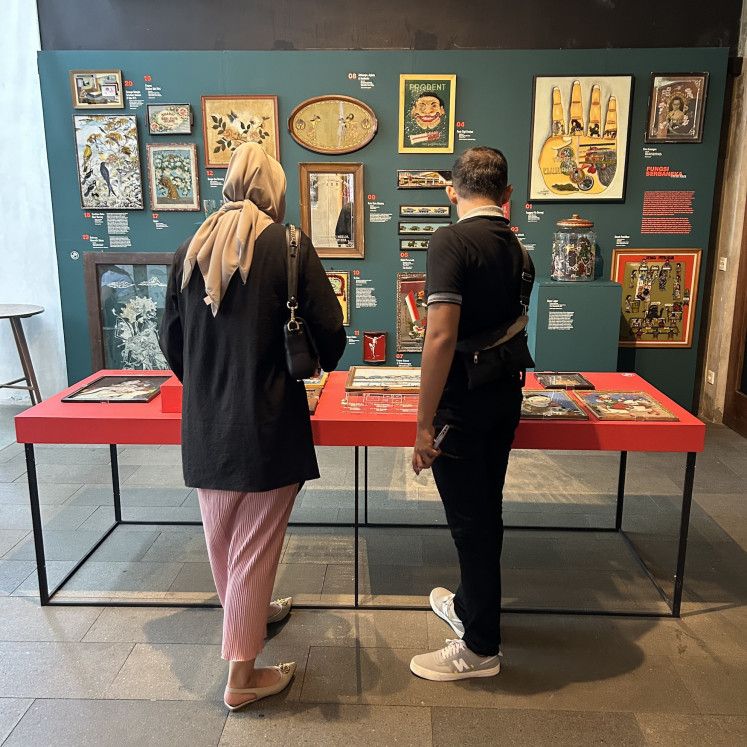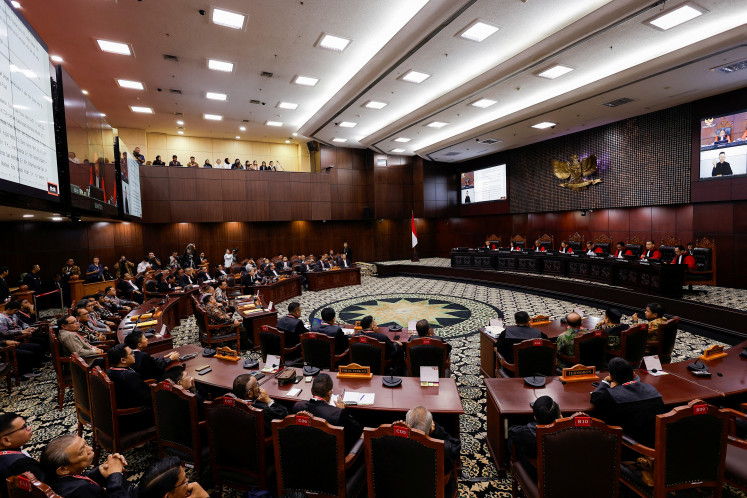Album Review: 'Wanci' by Tarawangsawelas
Change Size
 ‘Wanci’ by Tarawangsawelas (Tarawangsawelas/File)
‘Wanci’ by Tarawangsawelas (Tarawangsawelas/File)
O
n its first official full-length record, Bandung musical duo Tarawangsawelas unleashes a hyper-focused album of superb-minimalist grace.
Wanci is filled with shape-shifting drones created with traditional Sundanese stringed instrumentations that move between more expected ethnic movements and soundscapes that edge closer to the sonic sound explorations of noise, ambient and even musique concrète in its best moments.
While the album could have benefited from a deeper dive into clashing traditional vs modern experiments, it acts as a very welcome introduction to the duo’s musical approach.
The way some of the melodies and instruments intertwine in patient embrace, allowing moments to develop in slow currents, are also slightly reminiscent of minimalist composers such as Steve Reich and Phillip Glass.
While their similar on the surface artist’s brethen Senyawa impresses with a harsher sensibility most of the time, Tarawangsawelas is more inclined toward pensive mood-setters that never fall into wallpaper music territory, inserting piecing moments of leftfield explorations.
Released on the same label that has pressed records by Senyawa as well as solo releases by that band’s two members, Wanci may very well hold the key to bringing Tarawangsawelas onto International shores (Senyawa is, along with Rich Brian, certainly some of the country’s easiest to support artistic exports — simply for fact of being good while also preserving national roots), but even without the push of the Morphine Records label, this is an album that deserves attention.
The two men behind Tarawangsawelas — Teguh Permana and Wisnu Ridwana, with help from their music teacher Pupung Superna and Jaja — build their sound upon the traditional Sundanese music of Tarawangsa.
Tarawangsa is played on two string instruments — which are a two-stringed bowed instrument (which happens to be called a tarawangsa), and jentreng, a seven-stringed instrument not unlike kecapi.
Tarawangsa is one of the oldest known traditional Indonesian instruments, known before even the more-popular rebab. The type of music was played in various parts of West Java. It is usually played as part of long, eight-hour plus ritual, and consists of prayers and offerings.
The repetitive nature of the music is a key element, looping itself with minor variations before slowly morphing into subtle crescendos. Tarawangsawelas combine these key elements with more modern styles of experimental music.
On the album tracks, “Selalu” (Always) and “Tetap Terbit” (Still Rises) these soft builds sustain their slow-lurching notes while variable elements twist and turn around them. The former structures itself with the jentreng sustaining between a few minimal notes and the tarawangsa move around it with minor-thirds, providing dramatically sorrowful countermelodies throughout. Tarawangsa here sounds almost oriental initially, before it mutates into something more percussive, eventually retreating back and making room for jentreng to speed up dramatically.
“Tetap Terbit”, meanwhile, is an aural adventure of sorts, letting the Tarawangsa stage an eerie, yet pretty atmosphere around what sounds like found sounds or field recordings that pulsate around everything (perhaps it’s an instrument being hit by something?).
It’s unwielding and comes closest Acousmatic music in terms of presentation; it is also one of the record’s most delectably challenging moments — providing a lovely brokenness upon the album’s many offerings of beauty.
“Kecemasan” (Worry) is one such beauty. A more elemental version of “Selalu”, the almost eight-minute song is pure traditional ambience; with the two instruments intertwining with each other, never really taking each other over and instead sustaining that “pretty” momentum throughout the duration of the song.
“Ada” (There is) is a nuance-filled serving of the tarawangsa and jentrengplaying against each other, with the latter instrument seemingly sounding like its fed through some effects, looping itself onto the next song, “Sekalipun” (Even Though). This song comes closest to the kind of straightforward presentation tourists would encounter, and it’s not difficult to wish that the duo infused some twist onto its obvious gracefulness.
Overall, Wanci is a satisfying record from a conceptual duo that could clearly serve up an even-more adventurous offering that what is to be found here. Still, maybe the aesthetic here works better in inviting listeners in before less-ear-friendly sonic attacks come into play.









